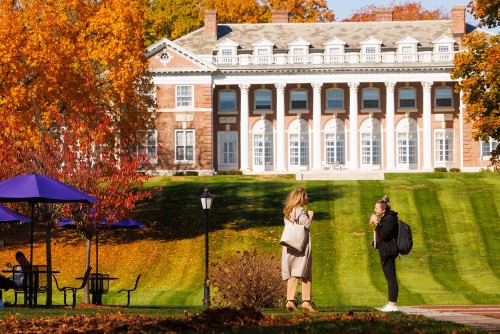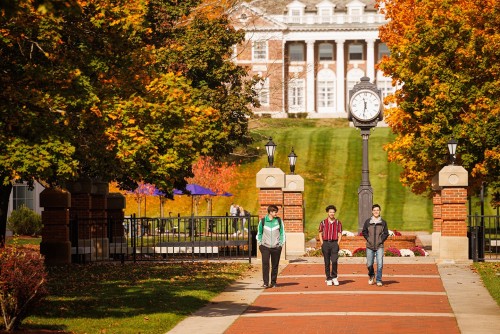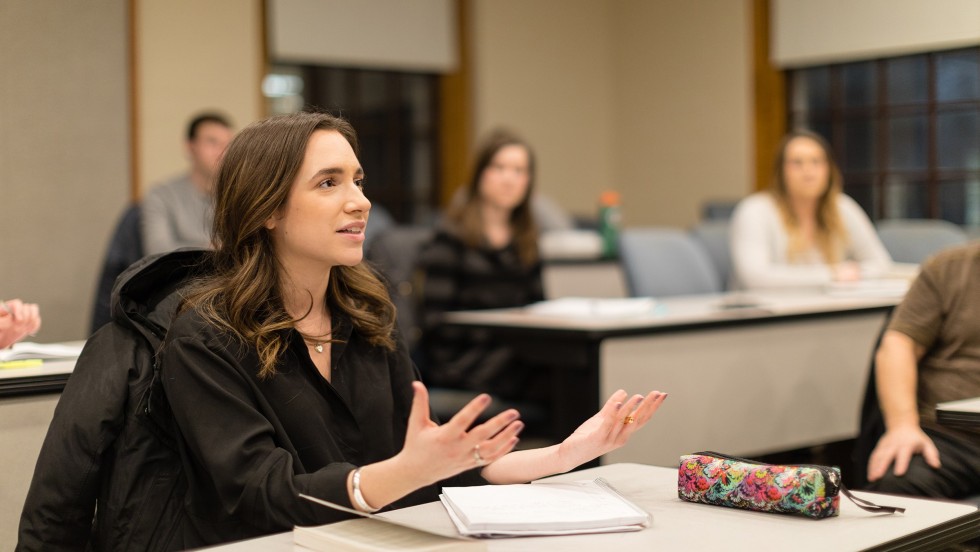Biochemistry Major & Minor
Stonehill’s Biochemistry program draws on the disciplines of biology and chemistry. It combines technical training and the liberal arts, resulting in superb scientists who are also well-rounded lifelong learners.
Compassion, Career Align in Quest to Help 9/11 Families
The knowledge and value system instilled at Stonehill inspire an alum as he leverages DNA science to help victims' families find closure 20 years later.
Be Challenged and Supported With Access to Exceptional Resources
Through a rigorous course of study with a strong emphasis on the learn-by-doing approach, the Biochemistry program is committed to providing the practical knowledge and skills necessary for graduate study in biochemistry, chemistry, molecular biology, genetics and biotechnology or admission to professional school.
Our science professors will be the first to tell you: We are focused on the whole person, not just on creating great scientists. We want our students to find purpose and meaning in their lives.
Three Things You Need to Know About the Program
- The chemical composition and three-dimensional structures of biomolecules and macromolecular assemblies
- The molecular mechanisms of enzymatic catalysis and regulation of biochemical reactions
- The metabolic reactions which synthesize and degrade biomolecules with an emphasis on bioenergetics
Unlike science programs at many other colleges and universities, professors teach all of the labs at Stonehill. They create a supportive and challenging learning environment that will help you to acquire the knowledge and skills needed to succeed during and after college.
You will have a biology or chemistry faculty advisor who, over the course of four years, will help you deal with all of the questions and decisions that lead to life after Stonehill.
At Stonehill, science students get to use equipment that, at other schools, is often only available to faculty and grad students. Our High Field Nuclear Magnetic Resonance Spectrometer is a $230,000 instrument that chemistry students are using the first semester of their first year. By junior year they are using our Ultra Performance Liquid Chromatography-Mass Spectrometer and Gas chromatography Mass Spectrometer.
Recent Accolades
Organizations involved in assessing U.S. colleges and universities continually cite Stonehill as being among the best in the nation when it comes to value, outcomes and a commitment to making the world a better place. See full list of accolades.
-
U.S. News Ranks Stonehill in the Top 5% Nationally
After assessing U.S. colleges and universities based on 17 measures of academic quality and graduate outcomes, U.S. News & World Report ranked Stonehill No. 73 in the Best Value category out of 1,500 colleges, while also moving up to No. 83 among National Liberal Arts Colleges.
-
Wall Street Journal 2025 Rankings Place Stonehill Among Best Colleges in U.S.
Stonehill College has been recognized again this year by The Wall Street Journal for the value it provides students, especially in the areas of career preparation and character development.
-
Money Ranks Stonehill Among Best U.S. Colleges in 2024
Money’s 2024 Best U.S. Colleges research shows Stonehill among top 10% nationwide.
Undergraduate Research
How to Make It Work for You
Peer-Led Team Learning Program
PLTL meetings are a hallmark of the collaborative learning environment in the sciences at Stonehill. PLTLs are small groups of students who gather weekly to work on problems. You’ll quickly value these meetings because they connect you with your fellow students so that you can take advantage of their expertise while sharing yours and working together through complex course material.
Atrium Tutors
Atrium Tutors are in the Shields Science Center’s Pettit Atrium from 8:30 to 11:30 almost every night to help students with their science problems. All Stonehill science students have an assigned tutor for their first two years in the program.
A Minor That Pairs With Many Majors
The Biochemistry minor provides a strong foundation in molecular and cellular biology and chemistry for those students wanting flexibility to pursue additional preparation in other disciplines such as business, English, mathematics, philosophy or psychology.
By the Numbers
Stonehill’s Biochemistry program enables students to obtain skilled technical positions after graduation or continue their education in graduate or professional school.
100% of Class of 2023 biochemistry graduates are employed, enrolled in top graduate programs or engaged in postgraduate service six months after graduation.
The early career salaries for graduates of Stonehill's Biochemistry and Chemistry programs are among the top 3% in the field, according to College Factual
Biochemistry Sample Courses
Advanced Topics in Biochemistry
Internship in Biochemistry
Partnerships & Special Programs
Save Money: Earn Two Degrees in as Little as Four Years
Have Questions?




